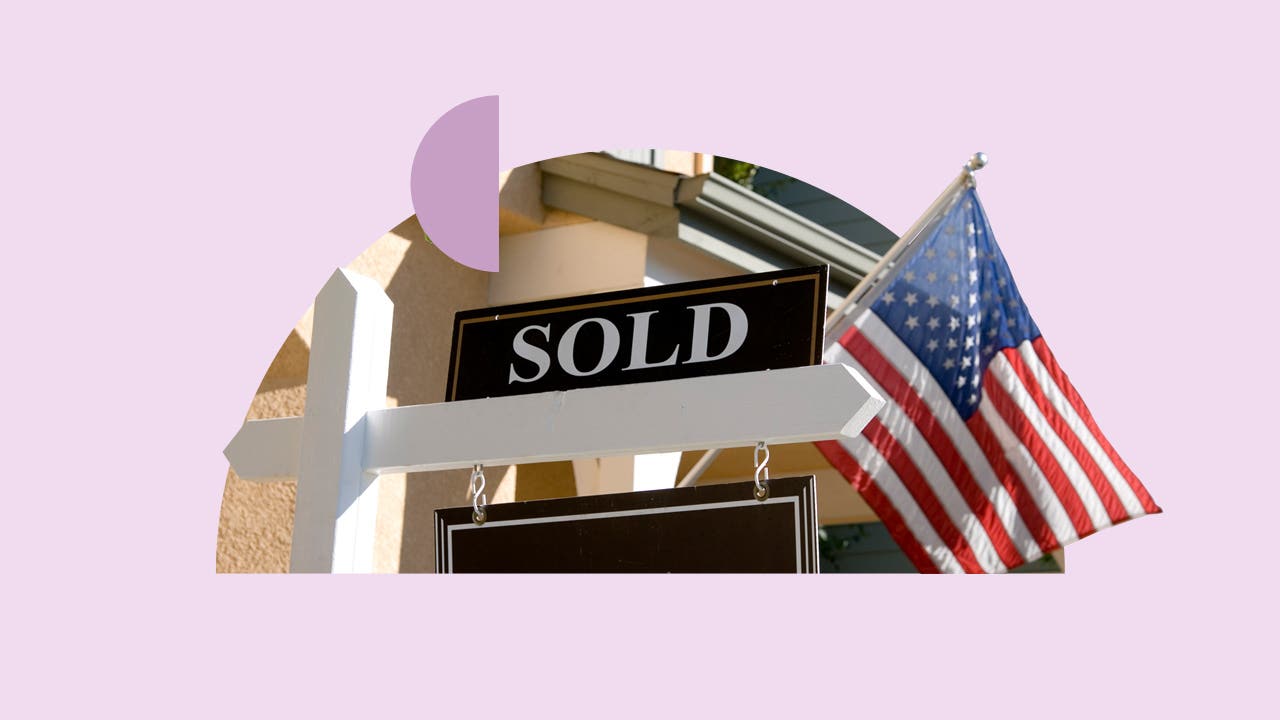What happens to the housing market in an election year?

The Bankrate promise
At Bankrate we strive to help you make smarter financial decisions. While we adhere to strict , this post may contain references to products from our partners. Here's an explanation for .
Key takeaways
- Despite the common belief that elections negatively impact the housing market, data does not prove out that theory.
- The housing market is influenced by a variety of factors, including supply and interest rates, that have a greater impact than a presidential election.
- For most Americans, election results will have little direct effect on their income and therefore should not significantly impact their decision to buy or sell a home.
Another presidential election looms, and that means it’s time to debate the quadrennial questions about the future of the republic, the fairness of the Electoral College and the effects of the election on the U.S. housing market.
Conventional wisdom holds that the general uncertainty caused by an election pushes many would-be homebuyers to the sidelines. But housing economists say there’s little evidence that elections — either the run-up to them or the results — actually affect home values. That assertion is underscored by the statistics.
The housing market in election years: What history shows
While there’s a persistent notion that presidential elections hamper the housing market, recent history tells a different story. There have been nine elections since 1987. Contrary to what many would expect, home price appreciation in those years actually outpaced appreciation in the 28 non-election years since, according to a Bankrate analysis of the S&P CoreLogic Case-Shiller Home Price Index.
Case-Shiller data shows that, on average, home prices have climbed 4.84 percent in election years since 1987. In non-election years, values rose 4.44 percent. That might lead to the conclusion that presidential elections are good for the housing market, but the reality is far more nuanced.
| Year | Appreciation |
|---|---|
| SOURCE: Case-Shiller Home Price Index | |
| 1987 | 7.22% |
| 1988 | 7.23% |
| 1989 | 4.39% |
| 1990 | -0.69% |
| 1991 | -0.17% |
| 1992 | 0.82% |
| 1993 | 2.16% |
| 1994 | 2.52% |
| 1995 | 1.79% |
| 1996 | 2.43% |
| 1997 | 4.02% |
| 1998 | 6.44% |
| 1999 | 7.68% |
| 2000 | 9.29% |
| 2001 | 6.68% |
| 2002 | 9.56% |
| 2003 | 9.82% |
| 2004 | 13.64% |
| 2005 | 13.51% |
| 2006 | 1.73% |
| 2007 | -5.40% |
| 2008 | -12.00% |
| 2009 | -3.85% |
| 2010 | -4.11% |
| 2011 | -3.88% |
| 2012 | 6.44% |
| 2013 | 10.71% |
| 2014 | 4.51% |
| 2015 | 5.20% |
| 2016 | 5.31% |
| 2017 | 6.21% |
| 2018 | 4.52% |
| 2019 | 3.68% |
| 2020 | 10.43% |
| 2021 | 18.87% |
| 2022 | 5.65% |
| 2023 | 5.56% |
For instance, the worst year for the housing market in recent decades by far was 2008. Home values plunged 12 percent that year, according to Case-Shiller. That had little to do with Barack Obama’s battle with John McCain — rather, the drop in home prices was all about economic timing. The historic housing bubble of 2004 to 2007 finally had burst, and the global economy was collapsing.
Meanwhile, one of the best years for home prices was 2004. Home values soared 13.4 percent, a result that was mostly due to the inflating housing bubble, not George W. Bush’s re-election that year.
The best year for home values since 1987 came in 2021. Values soared 18.9 percent that year amid record-low mortgage rates and the COVID-19 housing boom — not because it was Joe Biden’s first year in office.
“Historically, the housing market doesn’t tend to look very different in presidential election years compared to other years,” says Lisa Sturtevant, chief economist at Bright MLS, a large listing service in the mid-Atlantic region. “It’s really about demographics and the economy.”
What drives housing prices?
Home values are driven by a complex combination of factors, including the available supply of housing, the demand for those homes and the trajectory of mortgage rates. It’s not a simple formula, and that complexity leads to plenty of conjecture about the role of various factors that may or may not affect the housing market. Election years are one such factor.
“Many speculate on how presidential elections impact home prices,” says Ken H. Johnson, an economist at Florida Atlantic University. But for all the hypothesizing, there’s no clear evidence that elections much matter: “To date, there is no statistical evidence that one winning side versus the other has any impact on home prices,” Johnson says.
Presidential candidates often stress their economic plans, but economists generally agree that presidents have little to no influence over a market as broad as the U.S. housing sector.
Housing starts, unemployment, interest rates and a multitude of other factors are more important than what’s happening on the national political scene, says Michael Seiler, a housing economist at the College of William & Mary in Virginia.
“Those other factors overwhelm the presidential election,” Seiler says. “The president has only so much he or she can do to control the economy.”
Indeed, for a president to truly swing the market, he would need to direct the purchase or sale of large quantities of homes — something not in the purview of the commander in chief. Presidents do not set mortgage rates either. In one example of the limits of presidential power, Joe Biden in 2020 made a first-time homebuyer tax credit a centerpiece of his housing platform. As of 2024, that policy has yet to be enacted.
Should I buy or sell a house in an election year?
If you’re considering buying or selling a home, there’s essentially no reason to let campaign season change your plans. If you work for a federal agency and might lose your job if the incumbent loses, then the election affects your finances directly. But for most Americans, the outcome of the election will have little direct effect on their income — and therefore, you can safely ignore national politics while making your real estate decision.
Related Articles


Spring homebuying season is all but canceled — but will it hurt home values?

Is the housing market going to crash? What the experts are saying
